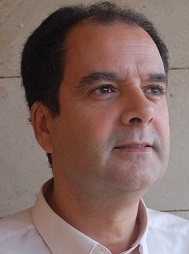South Africa's Zuma Shows How to Rule By Creating Constant Chaos
October 19, 17
How much stark a contrast could there be than the images of Nelson Mandela walking free from prison 27 years ago after serving 27 years in prison and the latest developments in the country brought about by one of his successors, President Jacob Zuma.
Mandela amazed the world by calling for reconciliation between the country's racial groups and established the Truth and Reconciliation Commission to investigate past human rights abuses during the period of apartheid. Compare that with the record of Zuma. This week, he sought to keep his foes at bay by creating more division by needlessly sacking his Education Minister in a Cabinet reshuffle.
Since becoming president in eight long years ago, Zuma has made more than 130 changes to the national executive, including almost 70 changes to ministerial positions, and 64 changes to deputy ministerial positions along with a change to the deputy presidency. The latest Cabinet reshuffle saw him change six ministers. As one political analyst said this week, one of Zuma’s biggest characteristics is that he governs through a system of chaos.
All this is simply part of a fight to reclaim authority over a deeply divided governing party ahead of the ANC’s elective conference, to silecnce critics within the ANC and to deflect attention from charges of corruption, according to some reports. Never mind the abysmal economic and political situation in South Africa and that millions remain in a state of poverty and have seen little if any change in their standards of life, Zuma's main concern appears to simply stay in power as long as possible and out of the courtroom and possibly jail.
The country's economy fell into recession for the first time since 2009 earlier this year. Even a strong performance by the powerful mining sector could not prevent it as the economy shrank for a second straight quarter in the first three months of 2017. This recession is the first in eight years as poor manufacturing and trade figures made a big dent in the economy which declined by 0.7 percent following a 0.3 percent shrinkage in the final quarter of last year.
Even more worryingly, some analysts said that fundamental conditions remain so weak, with limitations on growth so widespread, that expansion is likely to come in at less than 1 percent this year.
His decision to kick out previous Finance Minister Pravin Gordhan at the end of March had an immediate deleterious effect: weakening the rand further and leading the globally important agencies Standard and Poor's and Fitch Ratings Ltd. to cut their ratings on Africa’s leading industrial economy to junk status. An extraordinary state of affairs by any measure.
Zuma has been entangled in a series of scandals for the past couple of years and faced calls from within the African National Congress to step down. However, attempts to remove Zuma have led to nothing. A conference of the ANC in December is due to pick a successor to Zuma as party leader, but he will remain as President until elections due in 2019.
The people of South Africa deserve better, but political considerations, it seems, will prevent that happening for some time to come.